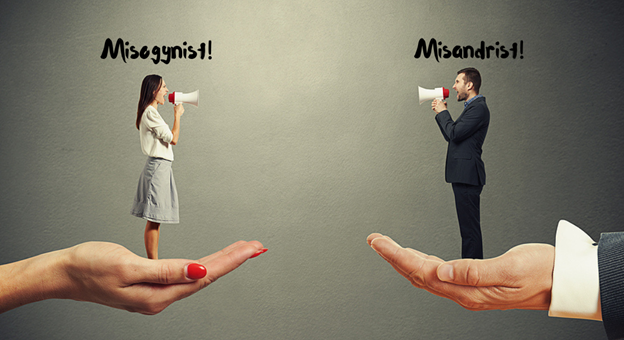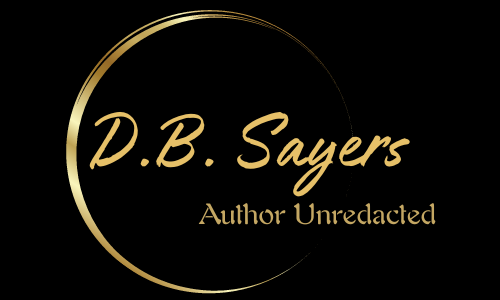
It's Not Our Imagination...the Paradigm Has Moved
I grew up in a household in which the only competent adult was my mother—a fact painfully obvious to anyone familiar with our family. Living in a college town in the early stages of the second wave of feminism, I was exposed the writings of Simone de Beauvoir, Betty Freidan and Mary Jane Sherfey, among others. But even before that, watching the contribution balance between my mother and her husbands, I often wondered why my mother bothered with the men she chose.
As I got older, that question was partially answered. A product of her time, marriage—to her—was the inevitable default status of “normal” adults. And the seductive example of her parents’ successful marriage tended to validate social norms. Social norms that attributed marriage failures to character flaws, irrespective of the variables that might also be at play.
For better or worse, much of the unexamined thinking that persuaded my mother to keep trying persists today—explaining, I think, the increasing acrimony of the disappointed. Even now, we are driven by a cluster of social expectations so deeply embedded in society, that few of us ever really examine them as critically as we should.
Based on our divorce statistics, many of us examine those expectations only after it’s too late. Not quite half of all first marriages don’t endure, while second and subsequent marriages end in divorce at the rate of between 60-70%, depending on who you ask. Like any collection of statistics, the foregoing information is subject to fluctuation and doesn’t tell the whole story. But on balance, the picture current relationship attrition paints isn’t optimistic.
Where Love Has Gone
The foregoing statistics notwithstanding, most of us cling to the default social model of wedded bliss without giving much thought to potential alternatives. And it’s not that the alternatives aren’t out there. It’s just that both heterosexual and many same-gender romances still tend to cling to some version of monogamous marriage. Or to put it another way, remain mesmerized by exclusive reliance on one someone else to deliver everything we want that we can’t or won’t do for ourselves.
If you’ve been following the running dialog (&diatribes) from both sides of the “gender debate,” you could be forgiven if you have concluded the ground is shifting beneath our feet. And who’s “at fault” for the shift(s) seems to depend largely on whether you’re a man or a woman…and secondarily, whether you identify as a “liberal” or “conservative.” With a nod to the fact that nobody asked me, here’s one broken-down, baggy-eyed old guy’s take.
Men, Women and Shifting Paradigms
No, ladies, we both know it’s not your imagination. In the third decade of the 21st Century, a stubbornly resistant default to patriarchy in most societies remains. Like it or not, collectively, we evolve (if at all) slowly. And yes, gentlemen—women are impatient for change and their frustration at us is often reflected in their writings. If our situations were reversed, I suspect we would be equally impatient.
But the sad fact alluded to above remains. While to some degree, we are all agents of change, most of us tend to evolve to the changes happening around us slowly. We need only consult the results of recent elections, both here in the U.S. and abroad to validate that notion. This is never more true, than in uncertain times. We allow fear or frustration to color our thinking (and behavior) often folding in on ourselves. At the same time, we often attribute negative outcomes to the wrong culprits. How often do we see cause-effect relationships where they don’t exist…or miss the ones that are there? A recent post here on Medium illustrates what I mean.
The Usual Suspects
In a recent post on Medium, it was suggested that “dating apps” have killed romance. I was a beat away from rebutting the author’s post, but close reading of her post made it clear that what she really thought was killing romance was how dating apps artificially commoditized humans and gave users a false sense of unlimited options. And she’s not wrong, IMO.
Her valid points acknowledged, I felt her observations stopped short of something at least as pivotal. “Online dating” is the natural result of an increasingly impersonal and distracted society. It is a virtual environment in which you can meet a larger number of men or women than you otherwise would. But however “target-rich’ the environment proves to be, the personalized nature of our wants and needs are still determinative.
And yes, the overarching social environment in which men and women interact clearly contributes to our frustration with each other—and not simply in matters of romance. But it is up to each of us as individuals to decide how much of our power to give away to our situation. Will we let the challenges of our environment dictate our attitudes about it, or will we manage our emotions in a way that facilitates understanding and success?
My Take on It
As someone with a lot of runway behind him, I can’t remember when dating, connecting, and achieving anything like a meaningful, fulfilling connection with the opposite sex was easy. Even as we age, while meeting and understanding gets easier, it never gets easy.
Whether you’re seeking a wife/husband, or a FWB, expecting it to be easy or devoid of frustration and conflict strikes me as unrealistic. Whether you’re meeting online or trying to connect organically for whatever objective, it’s complicated. Which isn’t to say that no one ever connects in a way that looks effortless from the outside looking in. There are those men and women for whom things just seem to come easily. But for most of us mere mortals, it’s work. And sometimes, work sucks. Whether it’s worth it or not is up to you to decide. If you decide it’s worth it, embrace the suck.
Over the course of my life, I’ve had periods where success seemed to come easily, punctuated by longer periods when it felt like I couldn’t win for losing. Perspective matters and the longer we kick around in this world, the more aware we become attuned to seasons…including those occasional sabbaticals from active pursuit of a partner in favor of just being.
There’s no wrong choice. But irrespective of the choices we make, attitude is everything and polluting the waters for each other is in no one’s best interest. In 2025, maybe we can all make a concerted effort to shelve our frustrations in general and take each individual as we find them. Who knows when the benefit of doubt might be all either of us need to connect in a way that does credit to all?
What do you think? Let me know in your comments.
D.B. Sayers is the author of West of Tomorrow, a last-chance romance woven into a tale of corporate intrigue and of the Nyra Westensee series. The first two books, Best-Case Scenario, Act I of Nyra’s Journey and The Year of Maybe, Act II of Nyra’s Journey all three of which are currently available on Amazon in both paperback and Kindle.

I am happy that I found this blog. I really enjoyed your take on this. Exactly what I’ve been searching for! .
I’m happy to have you visit. Welcome. Feel free to comment, argue, debate, etc. Thanks for stopping by. Make it a great day.
Thanks a bunch for sharing this. I’ve bookmarked your site.
Thanks, Mac. Thanks for visiting. Make it a great day.
THIS IS SO TRUE!
Thanks, Edwin. Glad to hear you agree. Make it a great day!
Whoa1 this is a freaking awesome website. And I loved this post. Keep up the good work! This is a refreshing take on how we look and gender and sex today.
Thanks Brent. I agree that we need a reset on how we look at each other and not just as men and women but as humans. Thanks for taking the time to read and comment.
Great post! Love the perspective.
Thanks, Teeter. Make it a great day.
This article is a breath of fresh air! You perspective on gender issues to day is a truly captivating read. Thanks for sharing this thoughtful and provocative piece. Brilliant writing!
Thanks, Kimmi. Very kind of you to say that. Make it a great day!
I love your take on how change has affected gender relations. Thanks for this perspective.
Thank you, Marco for taking the time to read and comment. Make it a great day.